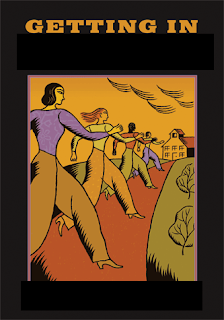Note: The Jonathan F. Mitchell in the article below is no relation of yours truly.
Perhaps some legal experts might care to comment.
A Conservative Lawyer’s New Target After Abortion: Affirmative Action
By Adam Liptak, May 23, 2022, NY Times
Jonathan F. Mitchell, the architect of the law that sharply curtailed abortions in Texas, filed a brief in the Supreme Court the other day. He has moved on to affirmative action. The filing has elicited rueful admiration from supporters of race-conscious admissions programs in higher education. “This brief supplies conservative justices with what they may well deem an enticing, elegant approach to dismantling affirmative action,” said Justin Driver, a law professor at Yale. The Texas law Mr. Mitchell helped devise was diabolical, critics said, in managing to insulate a ban on most abortions after six weeks of pregnancy from effective judicial review. His new friend-of-the-court brief, by contrast, made a simple point. He told the justices that they need not decide whether affirmative action is barred by the Constitution. All they need do, he wrote, is apply the plain language of a federal civil rights law, Title VI of the Civil Rights Act of 1964, which bars race discrimination by institutions that receive federal money.
The Supreme Court, which will hear arguments this fall in challenges to the admissions programs at Harvard and the University of North Carolina, has long held that the statute mirrors the Constitution’s equal protection clause. If an admissions program satisfies the Constitution, the court said, it must also be lawful under Title VI. That was a mistake, Mr. Mitchell wrote. His argument relies on textualism, which is the dominant mode of statutory interpretation at the Supreme Court these days, and not only on the political right. “We are all textualists now,” Justice Elena Kagan, a liberal, famously said.
Textualism is focused on the words of the statutes lawmakers have enacted rather than on their intentions or expectations. It can lead to results that please liberals, as when the court ruled in 2020 in Bostock v. Clayton County that Title VII of the Civil Rights Act protected gay and transgender workers. The plain words of that provision, which barred discrimination based on sex, required the result, Justice Neil M. Gorsuch, a conservative, wrote for the majority. It did not matter, he wrote, that the lawmakers who had voted for the statute did not understand that they were striking a blow for gay rights.
Soon after the Bostock decision landed, Jeannie Suk Gersen, a law professor at Harvard, wrote in The New Yorker that “the court’s opinion also has some potential land mines for liberals” and that “there is reason to think that Bostock’s formalist articulations on discrimination will bolster a conservative decision to dismantle race-conscious admissions policies.” Last week, Professor Gersen said Mr. Mitchell’s approach “is likely a convincing strategy for Justice Gorsuch at a minimum and probably other justices” and “avoids more difficult constitutional questions, making it easier for the court to hold that considering race in admissions is unlawful.”
Mr. Mitchell’s brief, filed on behalf of America First Legal Foundation, a conservative group led by senior members of the Trump administration, said that “the command of Title VI is clear, unambiguous and absolute.” The statute says: “No person in the United States shall, on the ground of race, color or national origin, be excluded from participation in, be denied the benefits of or be subjected to discrimination under any program or activity receiving federal financial assistance.” The equal protection clause of the 14th Amendment, by contrast, says that “no state” shall “deny to any person within its jurisdiction the equal protection of the laws.”
In the past, the Supreme Court has said the statute tracks the Constitution, relying on statements from lawmakers who had voted for it. “Examination of the voluminous legislative history of Title VI,” Justice Lewis F. Powell Jr. wrote in his controlling opinion in 1978 in Regents of the University of California v. Bakke, “reveals a congressional intent to halt federal funding of entities that violate a prohibition of racial discrimination similar to that of the Constitution.” Mr. Mitchell wrote that Justice Powell’s consideration of legislative history was both illegitimate and incomplete, as “there are plenty of floor statements from legislators who insisted that Title VI would indeed require colorblindness, in accordance with the unambiguous statutory text.”
...A ruling based on the statute...would leave open, at least theoretically, the possibility of further legislation. Harvard could also, Mr. Mitchell wrote, turn down federal money. Harvard, for its part, told the justices that Congress is free to revise Title VI if it disagrees with the Supreme Court’s conclusion that it mimics the equal protection clause. “If Congress wanted to amend Title VI to prohibit private universities from considering race in admissions, it could do so,” the brief said, “but it has not.”
Full story at https://www.nytimes.com/2022/05/23/us/politics/supreme-court-affirmative-action.html.
===
The brief is at https://www.supremecourt.gov/DocketPDF/20/20-1199/222871/20220510094724165_SFFA%20v.%20Harvard%20AFL%20Amicus.pdf.

No comments:
Post a Comment